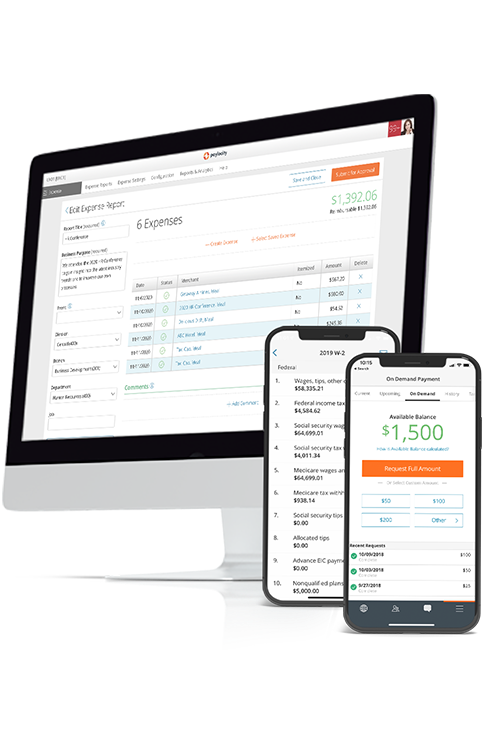Deferred Compensation
Summary Definition: An arrangement in which an employee’s earnings are withheld and paid out at a future date.
What is Deferred Compensation?
Deferred compensation is an agreement between an employer and an employee to delay the payment of a portion of the employee's earnings until a future date. In other words, employees earn money now, but receive it later.
Typically, funds are invested or saved in an account to earn interest or returns until they’re paid out, usually after the employee retires. This allows employees to reduce their taxable income each pay period and build savings for their future financial plans.
Key Takeaways
- Deferred compensation is earned income an employee agrees to receive later, usually after retirement.
- Employees contribute some of their wages each pay period into a deferred compensation plan.
- Plans differ in structure but are usually either qualified or non-qualified, each of which carries certain pros and cons.
How Deferred Compensation Works
When enrolled in a deferred compensation plan, employees contribute funds from each pay period and wait to access the accumulated sum along with any earnings the plan has made.
Some employers will also match an employee’s contribution at a reduced rate. For example, if Employee A’s organization offers 5% matching and Employee A contributes $10,000 in a single year, the organization would then contribute $500 for that year as well.
Qualified vs. Non-Qualified Deferred Compensation Plans
Plans can be structured in a variety of ways but are generally classified as either qualified or non-qualified.
Qualified plans, also known as 457 plans, are subject to Internal Revenue Service (IRS) regulations, such as Internal Revenue Code (IRC) Section 457(b)opens in a new tab and the Employee Retirement Income Security Act (ERISA)opens in a new tab. Contributions to these plans can grow tax-free and are even exempt from some taxes, such as Social Security and Medicare.
Non-qualified plans, also known as 409A plans, don’t offer the same advantages but can be more flexible in their design and implementation. For example, they don’t have to follow an annual contribution limit the way qualified plans do. This makes them more appealing to high-salary employees who wish to maximize their retirement savings on top of a qualified plan, such as a 401(k).
| Feature | Qualified Plans | Non-Qualified Plans |
|---|---|---|
| Taxes | Contributions are pre-tax dollars (i.e., gross pay) | Contributions are post-tax dollars (i.e., net pay) |
| Security |
Held in a trust to protect from creditors in case of bankruptcy |
Not held in trusts |
| Portability |
Benefits can go with employees from employer to employer |
Benefits might not be transferable between employers. |
| Eligibility |
Some requirements for employees to participate |
No eligibility requirements |
| Contribution Limits |
Has annual contribution limits |
No annual contribution limits |
Deferred Compensation Pros and Cons
While the idea of delaying parts of a paycheck may not sound immediately appealing, deferred compensation has several advantages.
Benefits of Deferred Compensation
- Deferred Taxes — Contributions to deferred compensation plans often occur before taxes are deducted from an employee’s gross pay, which reduces the amount of overall taxes applied to the earnings. These taxes are delayed until the funds are accessed, and sometimes they can be lowered if the employee is in a different tax bracket when accessing the funds.
- Increased Value — One of the hallmarks of deferred compensation is its ability to grow over time. Whether it accumulates interest or sees high investment returns, deferred compensation can be worth more when it’s withdrawn than when it was contributed. This is especially true if an employer offers to match part of each contribution.
- Financial Forecasting – While employees can’t immediately access deferred compensation, they can direct where it goes and how it’s allocated. This allows employees to map out their financial future and schedule important dates (e.g., retirement) accordingly.
Drawbacks of Deferred Compensation
- Restricted Access — The most obvious downside of deferred compensation is that employees can’t use the funds right away. Moreover, if an emergency calls for accessing the funds early, there can be extra taxes or penalties depending on the plan’s structure and requirements.
- Reduced Protections — Non-qualified plans aren’t always as secure as qualified plans. Since non-qualified plans don’t have to follow the same legal requirements, they don’t have the same legal protections (e.g., ERISA) as qualified plans. So, if an organization runs into difficult times or experiences financial hardship, an employee’s deferred compensation could be affected as well.

